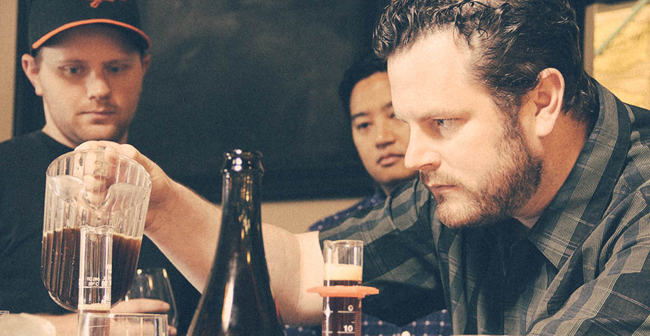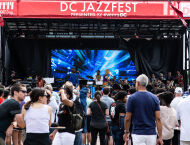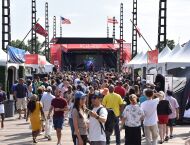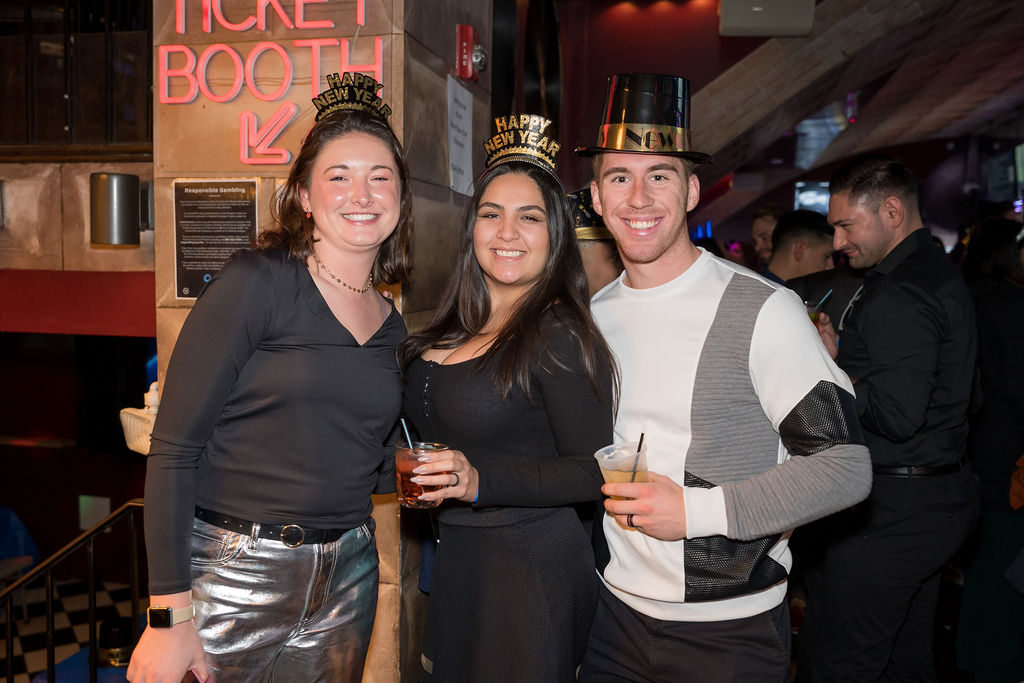Eat
 Photo: www.thebruery.com
Photo: www.thebruery.com
The Bruery Brings Their Brews To DC
January 27, 2018 @ 12:00am
For local beer lovers who didn’t get the memo in late January, you might have missed the grand opening of DC’s latest beer store: The Bruery. Along with crafted concoctions, including beers with higher-than-normal ABVs, the new beer retailer brings a robust reputation to its Union Market space.
Though the brewery is firmly anchored in California, Patrick Rue’s company operates with a subscription service so that consumers can get their fix no matter where they’re located. Because of its strong customer base in DC, Rue figured the District would provide a fantastic opportunity to expand and venture into a new location.
Before the doors opened, we got a chance to speak with the former law student turned brewery owner, and we touched on what this expansion means for him, the positives of his subscription service, and the differences between his brewery and others in the craft market.
On Tap: Congratulations on opening your new location. Did you envision this level of expansion when you decided to forgo the bar exam and open a brewery?
Patrick Rue: Yeah, it’s surprising. My intent when we opened was to make interesting beers at a small place. I never expected to have more than 10 employees; it’s pretty crazy. Rather than setting myself with a large objective, I’ve tried to look at it year by year and take the opportunities as they come.
OT: What’s a boutique brewery?
PR: We focus on making a whole lot of different beers in small amounts. Most are in 750 or 375 milliliters, and we see ourselves on the higher end of the craft beer market. We do more time-extensive practices. The general aftermarket has been all about flagships, regarding seasonals and stuff like that; we’ve never wanted to be beholden to a flagship. It becomes 70-80 percent of what you’re doing, because you’re focusing on one brand and it’s hard to stand out amongst the crowd.
OT: How long did it take you to brew a good beer?
PR: The first step was finding [the] efficiency of the brewhouse. Instead of screwing up a bunch of our own beer, we did a homebrew contest and that really became our first batch of beer. Our third batch of beer won a bunch of awards, including gold medals in [a] competition. We made good ones and bad ones early on.
OT: What inspires you to make more alternative beers, such as the ones with ABVs nearing 20 percent?
PR: When I was a home brewer, I remember another home brewer telling me he liked the practice because he could make beers that aren’t commercially viable. You can use whatever ingredients you want, when the commercial market goes for what is financially feasible. That challenged me to think of why and how we could make those kinds of beers viable. I knew that Sierra Nevada and Stone had already locked themselves in place, so why compete with those traditional IPA and pale ale styles?
OT: How do your subscription services work?
PR: We have our memberships, which allow us to sell beers directly to the consumer. When you’re able to do that, the cost of ingredients isn’t as important, but when you’re in distribution, that’s harder. We’ll use wine grapes that make hybrids, and we’ll use fruits that go in $200 bottles of wine, whereas our beer is about $50.
OT: Where did you get the idea to adopt this practice?
PR: In 2009, Lost Abbey had a membership program called Saints and Sinners, and I thought it was a great way to get beer directly to your main customers. This is what led to our foray into those heavier beers. We were a brewery that was barely a year old, and we had a line of 700 people, and we didn’t like them going through that pain to get our product. We wanted to identify who our core customers are, and then figure out an easier way to get them our beer.
OT: Why is DC a strong market for your new store?
PR: It’s a great craft beer culture, and it’s our best market outside of California. People have different ideas of what beers can be, and they’re very experimental; that’s just our style.
OT: Do you have any plans to open a brewery on the East Coast?
PR: Just a store right now. We still have room to grow in our California facility, and while shipping beers is expensive, it’s not as expensive as opening up a new brewery.
OT: Do you have any plans to do collaborations with some of the local breweries in the DMV?
PR: At this point, we’re [still] getting to know everyone in the area, but we’d love to.
Learn more about The Bruery’s DC location at www.thebruery.com.
The Bruery: 513 Morse St. NE, DC; 202-730-3600; www.thebruery.com/the-bruery-dc








